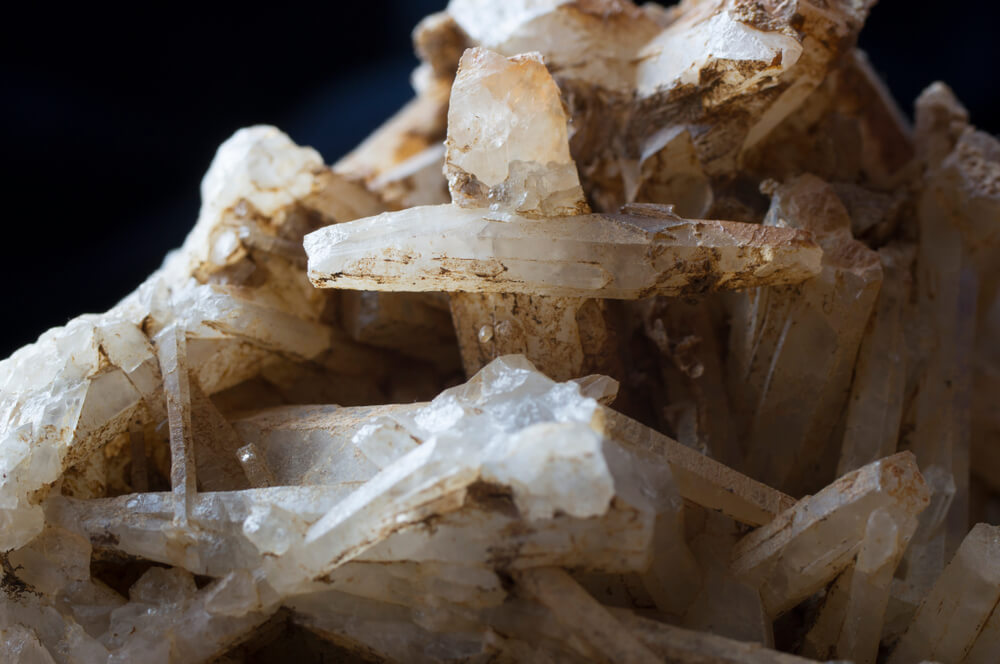Here at UQG Optics we supply optical products such as windows and plates, lenses and prisms in a wide range of optical materials, such as fused quartz, to suit every application and requirement.
Every material is selected on the basis of intended usage and required performance, such as light transmission in various parts of the spectrum, durability properties such as ability to withstand moisture, chemicals, heat and pressure, and its index of refraction.
Fused quartz is one of the key materials we offer and is often confused with fused silica.
Although the two materials are similar, there are differences. In this article, we’ll look at the properties of fused quartz, the properties it shares and distinctive differences with fused silica and some of the industries and applications in which it is used in its different forms.
What is fused quartz?
Quartz itself is a crystalline mineral comprised of oxygen and silicon, and is one of the most abundant naturally occurring minerals on the planet.
Fused quartz is manufactured by melting naturally occurring quartz crystals. Natural quartz crystals tend to have more impurities than the synthetically produced alternative, which means that the glass it produces has a lower optical quality and more flaws and bubbles.
Despite this, the flaws in question will not be visible to the naked eye and will only stop the glass being used in imaging applications and those with high optical requirements. Fused quartz still offers higher UV transmission than most other glasses. For high transmission in the UV where Fused quartz does not transmit or transmission is low, fused silica will be the material of choice.
Fused silica, is manufactured using synthetic quartz material and a process known as flame hydrolysis. Although this production process is complex and costly, it does create glass with purity which makes it suitable for applications requiring high-quality optics.
Optical properties of fused quartz
Fused quartz offers a high softening point, which means that it can be used in optical applications operating in high temperature environments.
This property of the glass is enhanced by the fact that it also exhibits low thermal expansion and has excellent thermal shock resistance.
As a result, fused quartz glass is able to withstand temperatures of up to 1300°C and can be heated and cooled rapidly with minimal risk of breakage. It also offers high levels of chemical purity and excellent electrical insulation.
Industries where fused quartz is used for optical purposes
Chemical and pharmaceutical
Certain chemical and pharmaceutical manufacturing processes tend to expose materials being used to high temperatures, water and corrosive substances. Fused quartz optics can be used in these circumstances without degrading over time or losing optical qualities.
Electronics
The fact that fused quartz offers only low conductivity makes it ideal for applications in the electronics and electrotechnology sectors.
High temperature
Any industrial process operating at high temperatures, but in which optical windows still need to retain their integrity, can make use of fused quartz glass windows. As a material, it has the added advantage of maintaining its integrity when temperatures shift suddenly from low to high and vice versa.
Light and laser
The optical properties also make it the ideal choice for laser systems which need to focus or separate light in order to function.
Optical
The versatility is underlined by the fact that fused quartz can be used in the manufacture of an extremely wide range of optical parts. Components such as lenses, mirrors and optics which transmit in the UV and IR range as well as metrology instruments, can all make use of it’s optical qualities.
UV light sanitation
UV light sanitation is a technology which really came to the fore during the Covid-19 pandemic. It offers a convenient and non-toxic alternative to traditional disinfection, as well as achieving the desired results with the minimum of disruption. The high thermal and radiation resistance offered by fused quartz makes it the ideal optical glass to be used in operations of this kind.
Next Steps
If you’d like to find out more about fused quartz, fused silica or other materials we supply, please contact us on 01223 420329 or email our sales team at info@uqgoptics.com. We’ll analyse your requirements and use our experience and expertise to decide which of our products is the one you need.




